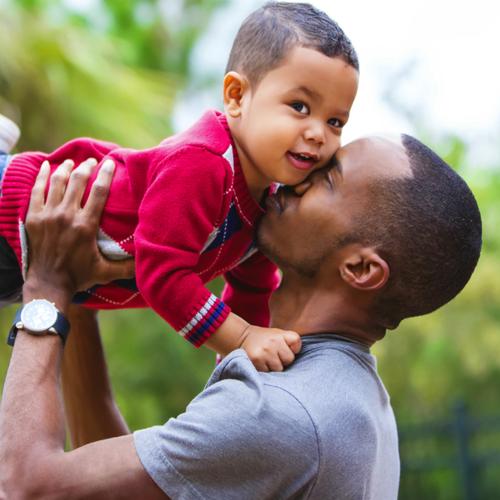I bet you dn't know this as a father, well read and thank me latter.

Photo Credit: iStock
By Keith Dent
As my phone rang, I touched the red button on my iPhone and said, “Hello.” Henry pleaded, “Coach, I need your help.”
Henry was a student of mine whom I had mentored since he was a senior in high school. He was now a 28 year-old single parent of a 3-year-old son. He had just recently received sole custody of the boy and was doing everything he could to raise his son the right way.
Henry’s son had just lashed out physically against his girlfriend. When Henry asked him to apologize, he refused and began to cry uncontrollably. Henry was at his wits end, because he had no idea what to do next, who would he ask for parenting advice.
It wasn’t just because Henry was new to this parenting thing. Unfortunately, he didn’t have any history on how to raise a son because his father didn’t raise him. He died at an early age. But he’s not the only black male to grow up without a dad around. The epidemic of fatherless sons is far too common now in the African-American community and it’s having life and death implications for our sons.
According to Children: Our Ultimate Investment, 72 percent of black children were born to unwed mothers in 2008, the most recent year for figures. The figures are 17 percent for Asians, 29 percent for whites, 53 percent for Hispanics and 66 percent for Native Americans were born to unwed mothers in 2008, the most recent year for which government figures are available. Other telling figures:
- Children in father-absent homes are almost four times more likely to be poor. In 2011, 12 percent of children in married-couple families were living in poverty, compared to 44 percent of children in mother-only families.
- Children in father-absent households had significantly higher odds of incarceration than those in mother-father families. Youths who never had a father in the household experienced the highest odds.
- Adolescents, particularly boys, in single-parent families were at higher risk of status, property and person delinquencies. Moreover, students attending schools with a high proportion of children of single parents are also at risk.
By not having a male role model, Henry had planned to use the only discipline he was expected to use, physical punishment. Fortunately, he reached out to me first. (I have two boys who I have been blessed with raising.) I offered these suggestions that will go a long way to saving our black boys to suffering the same fates as Trayvon Martin, Michael Brown and Eric Garner and countless others.
1. Use Your Words
In school we taught our kids at an early age to use their words to express their feelings. One of the challenges is as men we don’t often practice what we preach and lash out physically when we get frustrated. Since our boys are going to emulate our actions, then we have to start modeling less physical methods of confrontation. Minnesota Vikings player Adrian Peterson used corporal punishment because that’s the way he was raised. Your son will do the same thing and it may eventually land him in a situation he may regret.
2. Apologize for Your Actions
We must help our sons realize that their actions have consequences. If you are going to lash out, commit a crime, beat up your wife, or attack a police officer there will be consequences which you can’t control. In order to make amends, you must apologize for your actions. We can no longer claim to be a victim for our behavior.